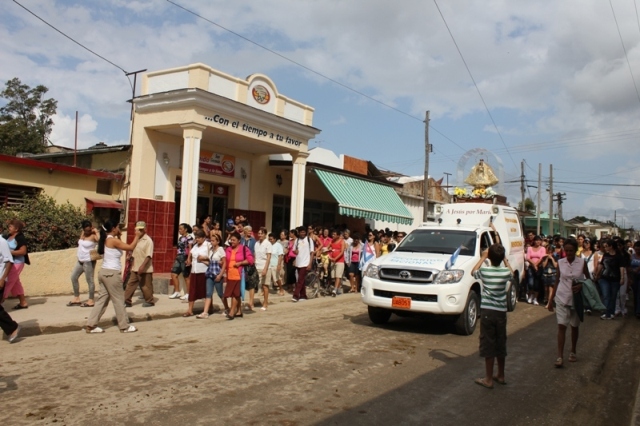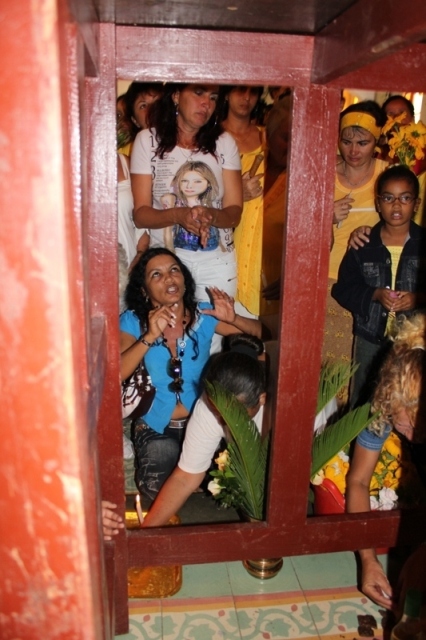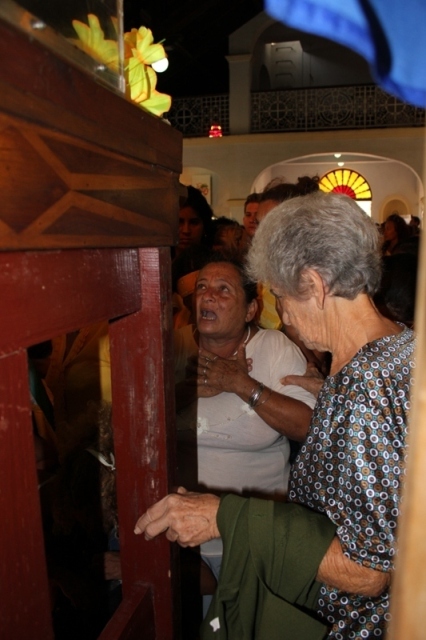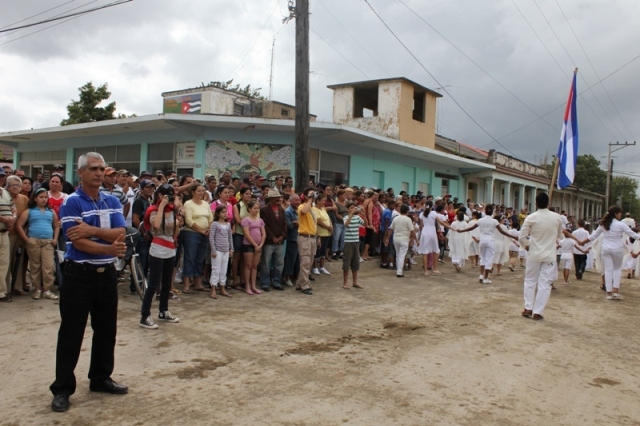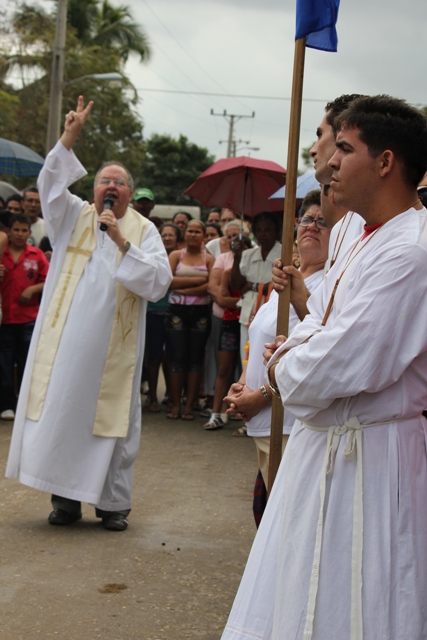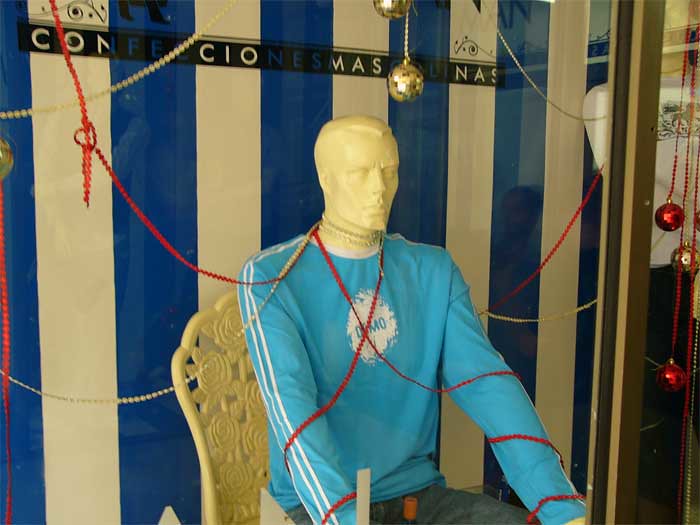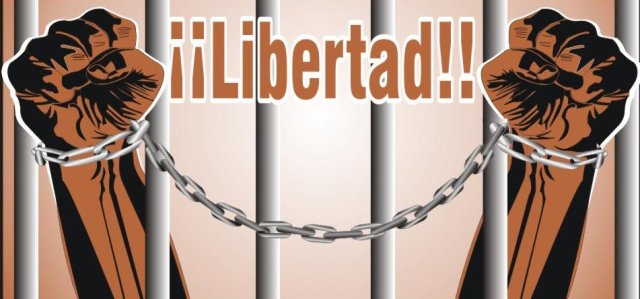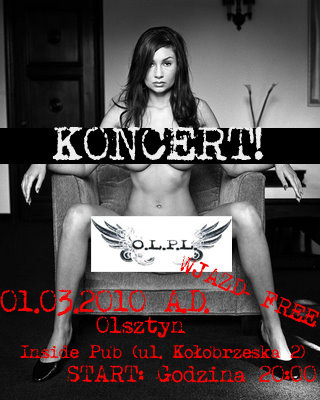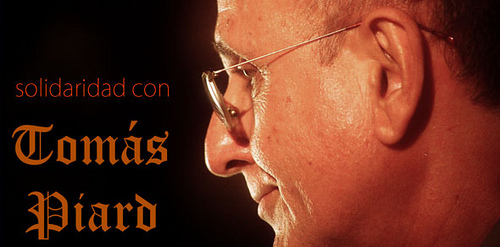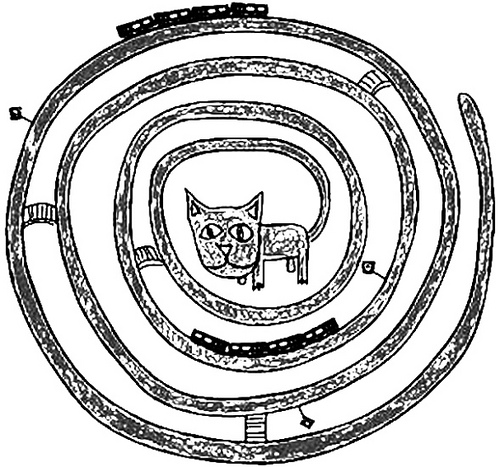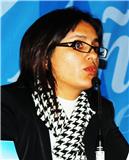 1 – Yesenia Álvarez, young intelligent, successful….strange combination. Tell me about yourself, this organization over which you preside, your professional and family education, and when and why you had this passion for Cuba.
1 – Yesenia Álvarez, young intelligent, successful….strange combination. Tell me about yourself, this organization over which you preside, your professional and family education, and when and why you had this passion for Cuba.
If in our countries we let our talents flourish in freedom we would not talk about a strange combination. I am sure that many young people in Peru take this path; however, there are a lot of reasons the youth of Peru and Latin America are able to fully enjoy the possibility of being successful if we express our talents without any populist, authoritarian or interventionist State appropriating the product of our work. Freedom, once you achieve it, should be constantly guarded. There is no way of assuring it will last forever. That’s the price of taking it: taking care of it. For this reason, in the IPL, the organization over which I preside, we are committed to spreading and demonstrating the benefits of living in freedom.
I studied law, and since the university, in the first years with my study of the origin of constitutional law, I remained captivated by liberal ideas, so always the situation of freedom and human rights in a long-lived dictatorship like the Cuban one has been my preoccupation since those years. I should add that in Peru as in other Latin American countries, the myth has been created that Cuba, rather the Cuban government, should be a model to imitate for our countries.
When I discovered liberal thought, I felt that I had always been liberal and am now committed to spreading it as a philosophy of life. I wanted to help demystify the supposed “social accomplishments of the Cuban government” that make many people, some certainly intelligent and well-intentioned, be condescending with one of the most perverse dictatorships of the continent.
2 – “Freedom is important to achieve development” is an interesting phrase that is attributed to you on the Internet, and it has generated comments. Aren’t you excluding those who don’t have something so relative and that many call “freedom”?
It doesn’t make it exclusive precisely because the phrase seeks to encourage countries that don’t have freedom to take this path, since where there is freedom there are conditions for each individual to construct his own destiny, there is the possibility of development, opportunities to generate wealth, to be successful, to improve your quality of life, and to accomplish your dreams. When you let someone else choose your future or destiny, which is what the populists and the “welfarists” want, you are condemned to what they elect to give you, and of course experience clearly shows that the life they want to give you is very poor.
What the Cuban government does is for me an example of this. There are many cases, I shall focus on one that ought to merit the indignation of anything called democracy, that is, they say that in Cuba they have the best quality education, but I ask myself, Can you call it education and even more one of quality if the students don’t decide what to study? If in order to study they have to affiliate themselves with thought that is only revolutionary? Can it be the best education if the student can’t decide what to do with that education, if the student can’t improve his quality of life because of an economic system that exploits him? There is nothing like self-development in Cuba from education. Can you call it education if once educated the student cannot read or say what he wants?
I’m speaking of the people, not those privileged ones who are close to power. The ones who exclude are those authoritarian members of government who exclude the citizens from the advantages of freedom. It’s easier to ask for revolution, socialism, a welfare state, the sacrifice of freedom when this sacrifice is for others. I say this in relation to all those who support the regime from outside, saying that “it’s worth sacrificing civil liberties in exchange for social accomplishments” but who are not capable of living in that dictatorship, like those people who are not privileged with power.
The freedom is the absence of those privileges acquired at the cost of the individual people who live in oppression. Freedom is a value and should not be sacrificed in exchange for other values. When it happens it soon becomes noticeable that freedom has been lost and also those values in exchange for which liberty was removed. In the name of a supposed better education those in Cuba who dare to think differently from the government are punished.
3 – In 1980, a small group of Cubans – in my opinion desperate, and on board a bus – broke into the Peruvian embassy. And although many Cubans have forgotten, this one event marked a “before and after” in my country’s history. Tell me, Yesenia, what you know about this, and relate to me, please, how they are now living, these Cuban families who generated the Mariel Boatlift and who remained stranded in Lima; people to whom more than 120,000 Cubans, instead of ignoring them, should owe them eternal gratitude?
There’s a strong bond between Peru and Cuba. I have heard many stories, and all are sad. No one deserves the mistreatment and abuse that those people suffered in their attempt to leave the country. There you can see the evidence of how the Cuban government has been the main separator of families. I don’t understand how people as sensitive as Silvio Rodríguez, García Márquez and others can be so condescending with a dictatorship that has separated Cuban families during all these years. It’s the symbolic story of Cuba, fathers, sons, brothers, families who want to be together and have been separated for years, because many people in exile can’t return.
The desire to flee of thousands of Cubans in 1980 should make us think. According to a recent report, hundreds of people came to Peru and after 30 years there are something like 60 left in Villa El Salvador. You would have to look at these stories, I am very interested in this, of how they managed in those years, those who left Lima, others who did well in Lima and also those who did poorly. Thirty years have passed and are not important.
Today Peru is not the same as then, Today they breathe the air of freedom but with certain barriers that we have to conquer so that we citizens can successfully build our future. We should value the fact that we have freedom of expression, of denouncing corruption, of opposing the abuses that citizens suffer with commercialism, to ask what they do with our taxes and above all the possibility of conquering poverty with our creativity. We should take care of the freedoms that we now enjoy and fight for more freedoms.
“Cuba and the Elephants” seemed to me to be a critical work, demystifying, respectful and real. You are a lover of peace, justice, and a defender of so many noble causes that, unfortunately, as I understand it, are partially lost today. Tell me, why did they expel someone like you from my country, and even more, prohibit you from entering?
For something that doesn’t happen in the middle of the 21st century in an open society. Together with four other Peruvian women I visited the Ladies in White in a public place, at the Church of Santa Rita in Havana. We did it in December 2007, on the eve of the International Day of Human Rights, to express out solidarity with their valiant and heroic effort against the dictatorship.
Even now I remember the fear and the uncertainty of our fate that day, first persecuted by Havana and then interrogated and detained at the hotel, forbidden from leaving and stripped of our passports. If there is something that works well in Cuba, it’s the repressive apparatus. Paradoxically, there we were without rights on the International Day of Human Rights.
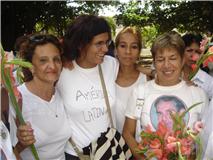 5 – It’s been an honor to know you, and I’m pleased to be your friend, Before ending, and because someone like you always arouses the passion of my readers, I would like to ask, are you married or single? Do you know how to sing? Do you like to dance?
5 – It’s been an honor to know you, and I’m pleased to be your friend, Before ending, and because someone like you always arouses the passion of my readers, I would like to ask, are you married or single? Do you know how to sing? Do you like to dance?
It’s also an honor for me to know you, Juan. I admire your work and your bravery which is why I very much appreciate beginning this friendship, which I predict will be long-lasting. I am single, I don’t know how to sing but I enjoy this talent in others. I have been told that I dance very well, although I’m a little old for that. One of my passions is basketball, and I adore movies and television series. Since my childhood I’ve liked to read a lot and to listen to thrilling stories about life. Thank you very much.
Translated by Regina Anavy
January 3 2011



